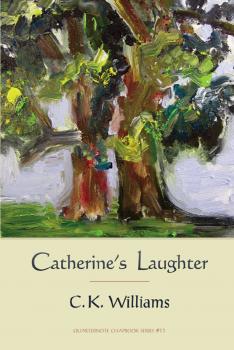Зарубежные стихи
Различные книги в жанре Зарубежные стихиThe Do-Over
Highly anticipated book: Ossip's previous poetry collection, The Cold War, received rave reviews from The New York Times Book Review, The Nation, Huffington Post, American Poet and many others. Craig Teicher at Publishers Weekly called it his favorite book of the year.Broad appeal: These poems are both melancholy and funny, and incorporate accessible references to popular culture.Extensive tour appearances: Ossip is using a semester sabbatical to promote the book and tour widely. University stops across the country will increase visibility for course adoption.
Wolf Centos
What is important is to avoidthe time allotted for disavowelsas the livid woundleaves a trace leaves an abscesstakes its contraction for those cloudsthat dip thunder & vanishlike rose leaves in closed jars.Age approaches, slowly. But it cannotcrystal bone into thin air.The small hours open their wounds for me.This is a woman's confession:I keep this wolf because the wilderness gave it to me.Simone Muench is the author of Orange Crush, Lampblack & Ash, The Air Lost in Breathing, and Disappearing Address. She teaches at Lewis University in Chicago, Illinois.
Antiquity
"The poems in [i]Antiquity very much abandon themselves to language, to the collective poetic endeavor, and they do so in a rich, textured, and sustained voice."—Mary Ruefle, from the introduction  Winner of the Kathryn A. Morton Prize, Michael Homolka’s [i]Antiquity offers the present infused with the past, from Ancient Greece to the Holocaust to contemporary battlefields. A haunting and evocative debut.[b] [b][i] [b]Michael Homolka lives and works in New York City. Homolka’s poems have appeared in the[i] New Yorker, Ploughshares, the[i] Threepenny Review, and elsewhere.  
The Spoons in the Grass Are There to Dig a Moat
Amelia Martens's prose poems reveal expansive ideas in compressed language. From the domestic to the geopolitical, from the mundane to the miraculous, these brief vignettes take the form of prayers, parables, confessions, and revelations. Intimate and urgent, Martens's poems are strange, darkly funny, and utterly beguiling. Amelia Martens is the author of the chapbooks Purgatory (Black Lawrence Press, 2012), Clatter (Floating Wolf Quarterly, 2013), and A Series of Faults (Finishing Line Press, 2014). She received an MFA in Creative Writing from Indiana University, and lives in Paducah, Kentucky, where she teaches at West Kentucky Community & Technical College.
Chord
Timely issues: Poems address vivid troubles of contemporary America, including political and societal distresses related to immigration and citizenship
Hustle
"David Martinez is like an algebra problem invented by America—he's polynomial, and fractioned, full of identity variables and unsolved narrative coefficients. . . . Hustle is full of dashing nerve, linguistic flair, and unfakeable heart."—Tony HoaglandThe dark peoples with things:for keys, coins, pencilsand pens our pockets grieve.No street lights or signs,no liquor stores or bars,only a lighter for a flashlight,and the same-faced trees,similar-armed stonesand crooked bushesstaring back at me.There is no path in the woods for a boy from the city.I would have set fire to get off this wildernessbut Palomar is no El Camino in an empty lot,the plastic dripping from the dashand the paint bubbling like a toad's throat.If mountains were old pieces of furniture,I would have lit the fabric and danced.If mountains were abandoned crack houses,I would have opened their meanings with flame,if that would have let the wind and trees lead my eyesor shown me the moon's tiptoe on the moss—as you effect my hand,as we walk into the side of a Sunday night. David Tomas Martinez has published in San Diego Writer's Ink, Charlotte Journal, Poetry International, and has been featured in Border Voices. A PhD candidate at the University of Houston, Martinez is also an editor for Gulf Coast.
Thought That Nature
Thought That Nature identifies and captures moments when the border between personal consciousness and the otherness of the physical become porous. Ironically, it also allows Moody to measure the distance between consciousness and direct experience, even as he casts this gap in memorable speech. This debut collection offers the reader sensual delight and intellectual pursuit—a rare and bracing combination.
Throw Yourself into the Prairie
Francesca Chabrier’s poems hold on to the possibility that the sorrowing parts of our lives may be transformed. The collection offers loose, sensuous, gentle associations, combined the interplay of comic and coy images. A debut of remarkable freshness and delight, through which syntactic innovation yields new meaning. Chabrier's poems entertain, startle, cast a spell, and bless.
Book of Dog
Influenced by survival lessons from the natural world, Cleopatra Mathis’ Book of Dog traces a harrowing personal journey from hard endings—a divorce, the death of a beloved dog—to the fierce arrival of acceptance and change. All manner of life thrives in these pages–plovers, foxes, the companionable beetle on the bedpost, and the coyotes just beyond her back door. This poet’s discerning eye, focused on the stringent truth of what she sees around her, aims outward and refuses the sentimental. Throughout the search, she is guided by the unbounded faithfulness and wisdom of her noble and comic companions on the path.









